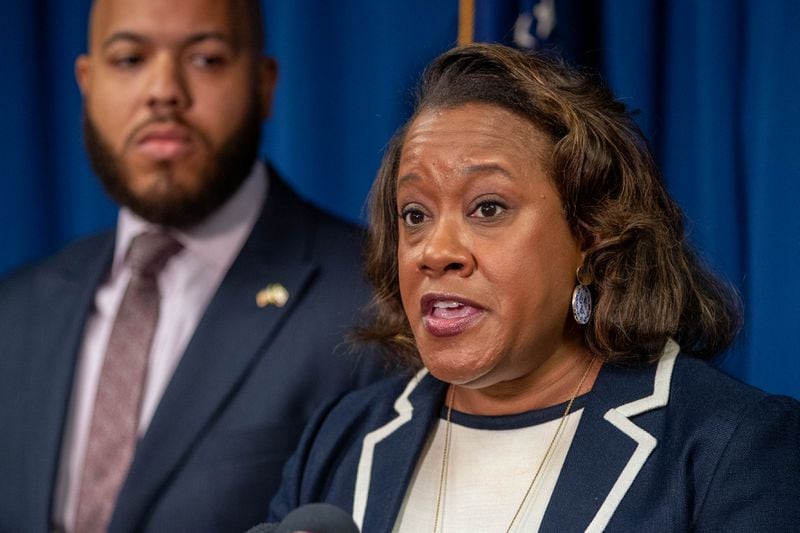The Georgia Supreme Court said Wednesday that it won’t approve rules and regulations for a new state commission empowered to sanction prosecutors, effectively rendering moot a law backed by Gov. Brian Kemp and other top Republicans until lawmakers overhaul the measure.
The six-page ruling said the state’s top court had “grave doubts” about whether it had the constitutional authority to approve of the rules set forth by the Prosecuting Attorneys Qualifications Commission, a step required by the law.
“Because we are under no legal directive to take action, the most prudent course for us is to decline to take action without conclusively deciding any constitutional question,” the order states.
That puts the law on hold. While the commission began accepting complaints earlier this year, under Senate Bill 92 it can’t take any action until the Georgia Supreme Court approves a set of rules and code of conduct.
The battle over the commission is being closely watched partly because Donald Trump’s allies aim to use the new law to punish Fulton County District Attorney Fani Willis for seeking election interference charges against the former president.
The order dealt a blow to Kemp and other Republicans who championed the law earlier this year as a way to punish “rogue” prosecutors over the objections of Democrats who say it flouts the will of voters.
The law is among a spate of Republican-led efforts nationwide to exert more control over liberal prosecutors they accuse of neglecting their duties because they refuse to enforce low-level drug offenses, anti-abortion restrictions and tough-on-crime crackdowns.
But it’s also attracted scrutiny because supporters and critics both say it could be deployed against prosecutors investigating Trump.
That’s what happened last month when Georgia Senate GOP leaders filed a formal complaint to the commission seeking to sanction Willis, even though Kemp and House Speaker Jon Burns said there’s no evidence that the Fulton prosecutor violated state law.
The court’s decision on Wednesday came as little surprise. Earlier this month, the court questioned whether it had the legal authority to approve the rules, prompting a response by the Association of Prosecuting Attorneys that labeled the commission “unlawful.”
At the heart of the legal back-and-forth is a question of whether the judicial branch has authority over the state’s district attorneys — an issue that the justices said they weren’t ready to resolve.
“In short, we have grave doubts that we have the constitutional power to take any action on the draft standards and rules,” the ruling states. “But deciding the question of whether we actually have that power would require deciding difficult constitutional questions of first impression outside of the adversarial process.”
There are signs that lawmakers expected the potential constitutional conundrum.
The Senate passed a floor amendment during legislative debate that would have removed the Georgia Supreme Court’s role in the process, but the change wasn’t adopted by the House and it wasn’t in the final version that Kemp signed.
Even so, Georgia lawmakers are expected to amend the legislation next year to remove the Georgia Supreme Court’s role. But the commission still faces a broader legal challenge from a bipartisan coalition of district attorneys who argue the measure is unconstitutional.
DeKalb County District Attorney Sherry Boston, among the prosecutors who brought the lawsuit, said the court’s order exposed the “fundamental failings” of the law.
”While we celebrate this as a victory,“ she added, “we remain steadfast in our commitment to fight any future attempts to undermine the will of Georgia voters and the independence of the prosecutors who they choose to represent them.“
Credit: Katelyn Myrick/AJC
Credit: Katelyn Myrick/AJC
About the Author









